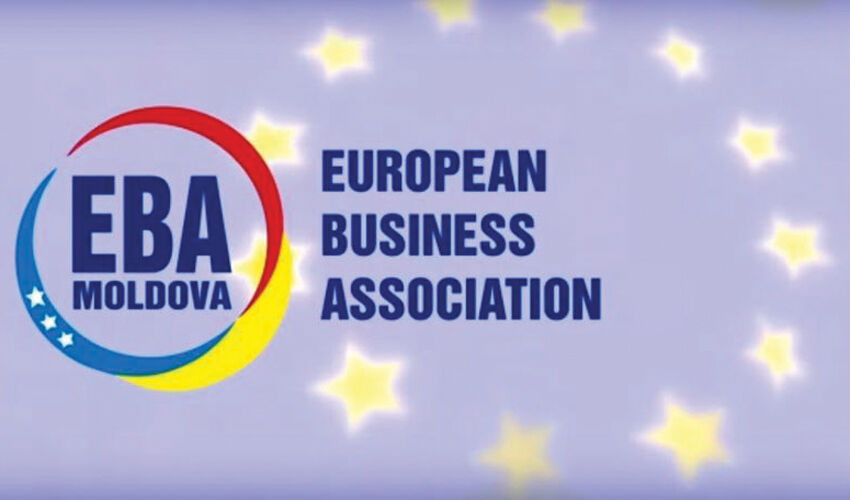
Meanwhile, business associations continue to prepare proposals to improve the current tax legislation within the framework of the development of fiscal policy for 2026. In particular, the European Business Association (EBA) presented its vision.
First of all, they relate to the harmonization of domestic tax legislation with the European one. Today, the Ministry of Finance is preparing the relevant changes to the sections “Excises” and “VAT”. And in this regard, the members of the organization propose to optimize the current VAT refund procedure. At the moment, the companies have accumulated a VAT debit of about 12 billion lei. De facto, this is the amount with which they credit the state. EBA members consider it necessary to liberalize the VAT refund not only under certain conditions stipulated in the legislation (export, capital investments, etc.), but for the whole amount of the debit.
Another proposal concerns the authorities’ intention to postpone the introduction of VAT on cars. The association does not agree with this decision. First, Moldova has assumed the obligation to incorporate the European norms into its legislation. Second, the impact of this norm on the budget and the economy as a whole should be analyzed once again. In conditions when the number of electric and hybrid cars, which benefit from the privilege, is growing, this will result in under-taxation of the budget. Therefore, EBA members propose not to postpone the introduction of VAT to the moment of EU accession, as the authors of this initiative suggest, but to leave the current law in force.
Thirdly, due to the fact that the European norms introduced into the legislation are innovations both for taxpayers and tax officials, to determine for them a transitional period (two years), during which not to apply sanctions. As it was established for the transfer pricing system, for example.
Another priority, according to the members of the organization, is green energy. They propose new tax breaks that would incentivize renewable energy producers. Namely, to allow taxpayers who invest in this sector to use accelerated depreciation in the first year – 100%. This measure will free up funds for subsequent investments and reduce their tax liability.
In addition, provide for a reduction in the real estate tax burden for facilities on which photovoltaic panels are located. The position of the Congress of Local Authorities (CALM) may differ, as this tax is directly channeled to local budgets. But, on the other hand, by introducing this measure, other taxes that renewable energy producers contribute to local budgets will increase. In addition, a comprehensive approach to this issue is needed, taking into account its impact on the environment.
Some of the association’s proposals are regulatory in nature. For example, at the moment, taxpayers face the problem of determining liabilities related to the use of sales promotion tools. Such as a discount, bonus or cashback. The business community has long proposed to introduce provisions in the Tax Code that would clearly state whether these amounts are taxable income for individuals. It should also specify what the tax consequences are for legal entities using such instruments.
Another proposal concerns the taxation of investment income. Currently, the tax legislation separates them according to the place of receipt: in Moldova and abroad. It is proposed to equalize them and to apply a single tax regime to them.
In addition, in 2019, the provisions on capital gains for legal entities were excluded from the TC. EBA members propose to bring them back. When today a non-resident sells an asset, its tax base is determined based on capital gains and is taxed at 6%. At the same time, a Moldovan resident in such cases pays 12% tax on income. They propose to unify these norms.
Another new instrument is the Stock Option Plan – a program under which employees get the right to buy shares of the company at a predetermined price. It is used to incentivize key specialists, especially in startups, as it allows them to benefit from the growth of the company’s value.
In Moldova, this concept is not yet functional because the tax consequences of granting and receiving this right are not sufficiently prescribed in the Tax Code. The regulatory framework for the application of this instrument should be developed by the government. But so far it has not been developed.
In addition, members of the Association of European Businesses propose a number of changes to the regulatory framework. Recently, the Ministry of Finance proposed for discussion a new order on transfer pricing. Two provisions from this document have caused concern among taxpayers. First, the division of transfer pricing files into local and international. Local entrepreneurs do not always have access to the database of a non-resident or parent company.
Secondly, if the legislation so far provided for preventive analysis of taxpayers’ information, without tax control, now it introduces mandatory control. Which implies other consequences for business. There are also inaccuracies in the concepts of recharacterization and annulment of the transaction. Therefore, it is not clear how Article 189 of the Tax Code “General rule against abuse” will be applied in practice, precise criteria are needed.
Another new tool is vacation vouchers. There is already a law and regulations, but at the same time there are still many open questions on their use. How will it work in conjunction with other benefits? With vouchers for sports and fitness centers, for example. In addition, the law limits deductions to 50% of average monthly wages. How will this threshold work in such cases, and how should an employer proceed to avoid crossing it? Also, how will electronic vouchers be issued and circulated. Similar to food stamps or different? All this needs to be clarified in order to launch this interesting mechanism for entrepreneurs.
In addition, today the process of voluntary unification of mayoralties has been launched in the country and administrative-territorial reform is to be carried out. Therefore, there may be questions about the status of rural tourism objects. For example, is Grătiesti a Chisinau municipality or a separate unit? And at what moment this status is determined – at the moment of granting a voucher or at the moment of its use. When the map of the republic changes, such nuances require clarification.
It is also not specified who are the beneficiaries of this benefit. At the moment we are talking about employees. Can female employees who are on maternity leave receive them? Or what happens when a vacation voucher is returned? Is it necessary to do a tax recalculation in this case or not?

